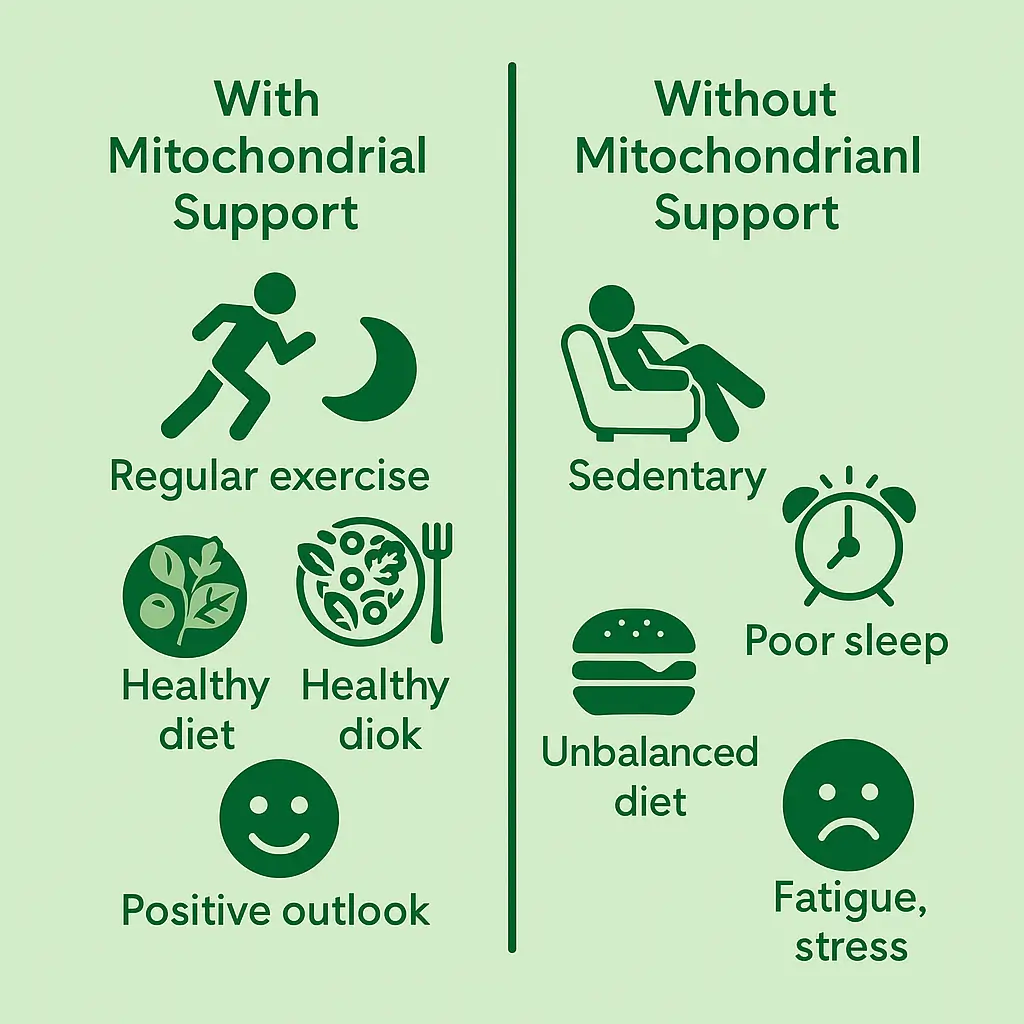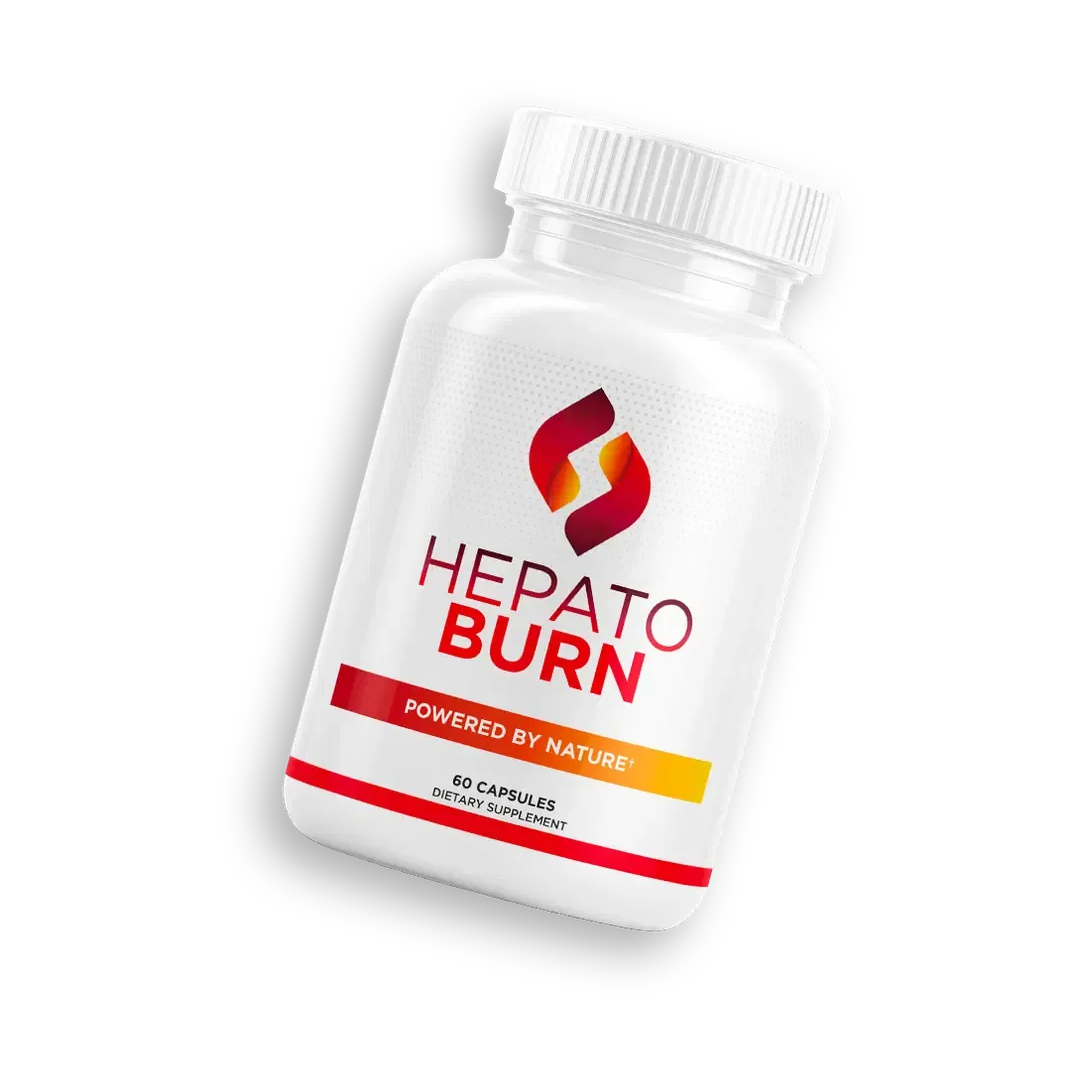Natural Ways to Boost Mitochondria and Feel Energized
If you’re struggling with constant fatigue and want to address the root cause, it’s time to boost mitochondria naturally. These tiny power plants inside your cells are responsible for producing the energy you need to function. When they’re not working well, your body and mind feel the consequences—tiredness, brain fog, slow metabolism, and even poor immunity.
In our last post, we explored why you’re still tired after sleeping 8 hours. Now, let’s take a deeper look into how to support your mitochondria and restore your energy naturally.
🧬 What Are Mitochondria and Why Do They Matter?
Mitochondria are organelles found in nearly every cell of your body. Their main job? Creating ATP (adenosine triphosphate), which is the fuel your cells use to function. Think of mitochondria as tiny engines running 24/7 to power your body.
When mitochondria become damaged or inefficient, energy production drops, and your body begins to feel the effects—no matter how much you sleep or rest.
⚠️ Signs of Mitochondrial Dysfunction
If you experience any of these symptoms consistently, your mitochondria might need attention:
- Low energy levels throughout the day
- Brain fog or trouble focusing
- Muscle weakness or soreness
- Premature aging signs
- Poor recovery after physical activity
🌿 How to Boost Mitochondria Naturally
The good news? There are several natural ways to support and boost mitochondrial function. Let’s explore the most effective strategies:
1. Prioritize Mitochondria-Friendly Nutrition
A clean, nutrient-rich diet is one of the best ways to support mitochondrial health. Focus on foods that contain:
- CoQ10: Found in fatty fish, organ meats, and whole grains
- B Vitamins: Especially B2 (riboflavin), B3 (niacin), and B12
- Magnesium: Found in leafy greens, nuts, seeds, and legumes
- Alpha-Lipoic Acid: Found in spinach, broccoli, and potatoes
- L-Carnitine: Present in red meat and dairy
🥑 Add More: Avocados, salmon, eggs, and dark chocolate (in moderation) also support mitochondrial function.
2. Intermittent Fasting and Caloric Control
Studies suggest that intermittent fasting can stimulate mitochondrial biogenesis—the process of creating new mitochondria. This practice also helps reduce oxidative stress and inflammation.
You don’t have to fast aggressively. Simply limiting your eating window (e.g., 10 am to 6 pm) can help your body enter repair mode and boost energy production.
3. Move Your Body—But Don’t Overdo It
Regular exercise, especially aerobic activity like walking, cycling, or swimming, increases both the number and efficiency of mitochondria.
- HIIT (High-Intensity Interval Training) has also been shown to promote mitochondrial health.
- However, avoid overtraining, which can cause fatigue and mitochondrial damage.
4. Reduce Oxidative Stress
Free radicals damage mitochondria over time. Antioxidants help neutralize them. Include these natural antioxidants in your routine:
- Vitamin C (citrus fruits, berries)
- Vitamin E (almonds, sunflower seeds)
- Polyphenols (green tea, dark berries)
- Curcumin (turmeric)
5. Improve Sleep Quality
Sleep is when your body repairs itself—especially mitochondria. Stick to a consistent sleep schedule and optimize your environment for deep sleep (dark, cool, and quiet room).
6. Limit Toxin Exposure
Environmental toxins, including pollution, pesticides, and processed foods, harm mitochondria. Reduce exposure by:
- Eating organic when possible
- Using non-toxic cleaning products
- Avoiding BPA and plastic containers
🧪 What About Supplements?
If your lifestyle is already optimized but you still feel drained, mitochondrial support supplements can make a difference. Look for formulas that contain:
- CoQ10
- PQQ (Pyrroloquinoline Quinone)
- NAD+ precursors
- L-Carnitine
- Resveratrol
These compounds support energy production, repair damaged mitochondria, and promote the creation of new ones.
💡 Want to know if supplements really work for boosting mitochondrial health? We’ve reviewed one of the most promising options. Don’t miss it!
🧭 Putting It All Together
You don’t have to overhaul your life overnight. Start by making a few small changes:
- Add more greens and healthy fats to your meals
- Move more during the day
- Improve your sleep quality
- Consider mitochondrial support supplements
Each step you take gives your cells the support they need to create more energy—naturally.
💬 Final Thoughts
When your energy is low, it’s easy to blame sleep or stress. But sometimes, the problem is deeper—at the cellular level. Learning how to boost mitochondria naturally could be the missing piece in your wellness puzzle.
By focusing on nutrition, movement, rest, and targeted support, you can feel the energy your body is capable of generating—every single day.














Post Comment